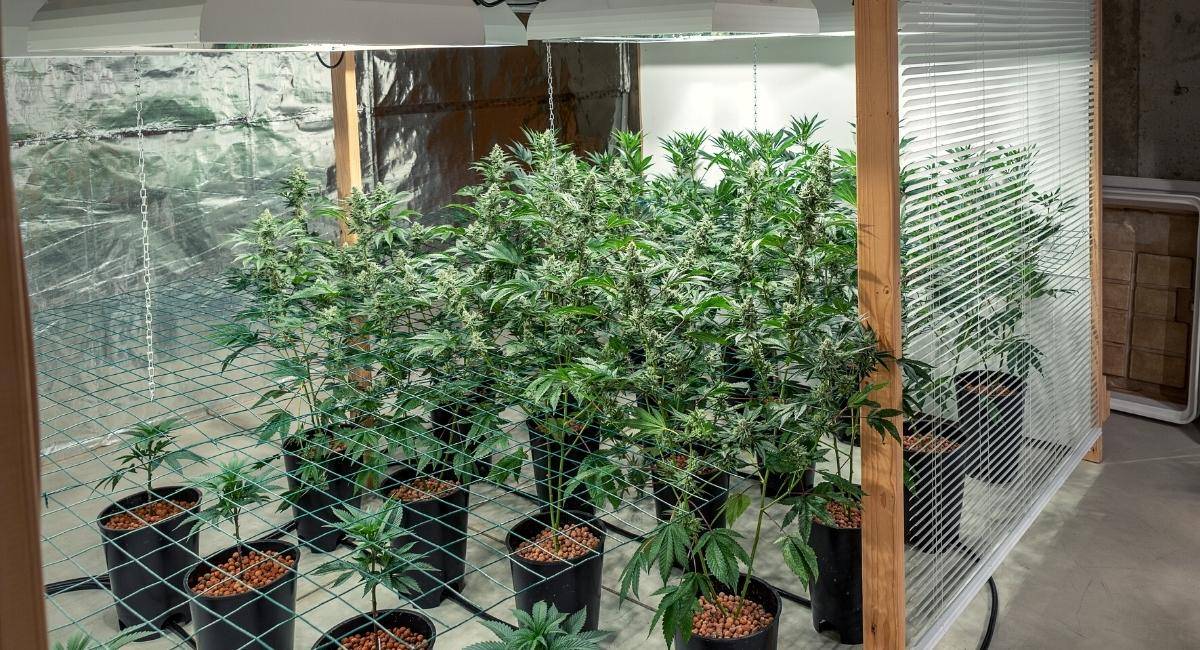The term cultivation refers to the act of growing plants and loosening or breaking up soil, and marijuana cultivation has only become more popular as more people attempt to grow it for themselves at home. Despite some medicinal uses, many people cultivating marijuana are doing so for recreational purposes. The bottom line in Texas remains that Illegal Cultivation / Grow House is prohibited and anybody who is discovered to be growing it for themselves can face serious penalties.
Cultivation is incredibly common in so-called grow houses, which are quite simply homes dedicated to growing marijuana and often sites of major police sting operations.

Illegal Cultivation / Grow House Defense Lawyer in Plano, Allen, Frisco, and McKinney, TX
If you were arrested for an alleged marijuana cultivation offense in Plano, McKinney, Frisco, Allen, Wylie, Fairview, or a surrounding area of Collin County, do not delay in seeking legal representation. Get in touch with The Law Offices of Richard C. McConathy.
Our firm has handled scores of marijuana cases in Texas and we know how to fight to get criminal charges reduced or dismissed. You can have us take a long look at your case and talk with you about your case when you call (469) 304-3422 or contact us online to set up a free consultation.
Illegal Cultivation / Grow House Charges in Collin County
Because there is no specific marijuana cultivation crime in Texas, most criminal offenses are prosecuted as marijuana possession. Marijuana possession involves a person knowingly or intentionally possessing a usable quantity of marijuana.
Texas Health and Safety Code § 481.002(26) defines marijuana (referred to as “marihuana”) as “the plant Cannabis sativa L., whether growing or not, the seeds of that plant, and every compound, manufacture, salt, derivative, mixture, or preparation of that plant or its seeds.” The term does not include:
- the resin extracted from a part of the plant or a compound, manufacture, salt, derivative, mixture, or preparation of the resin;
- the mature stalks of the plant or fiber produced from the stalks;
- oil or cake made from the seeds of the plant;
- a compound, manufacture, salt, derivative, mixture, or preparation of the mature stalks, fiber, oil, or cake;
- the sterilized seeds of the plant that are incapable of beginning germination; or
- hemp, as that term is defined by Agriculture Code § 121.001.
Agriculture Code § 121.001 provides that hemp is defined as meaning “the plant Cannabis sativa L. and any part of that plant, including the seeds of the plant and all derivatives, extracts, cannabinoids, isomers, acids, salts, and salts of isomers, whether growing or not, with a delta-9 tetrahydrocannabinol concentration of not more than 0.3 percent on a dry weight basis.” A Texas Department of Public Safety trooper arrested a driver in December 2019 who the agency claimed was hauling more than a ton of marijuana through the state near Amarillo and the man was held in jail for a month before lab results showed he was actually transporting legal hemp.
For marijuana possession charges, Texas Health and Safety Code § 481.121 dictates the following charges:
- 2 ounces or less — Class B Misdemeanor
- 4 ounces or less but more than 2 ounces — Class A Misdemeanor
- 5 pounds or less but more than 4 ounces — State Jail Felony
- 50 pounds or less but more than 5 pounds — Third-Degree Felony
- 2,000 pounds or less but more than 50 pounds — Second-Degree Felony
- More than 2,000 pounds — First-Degree Felony
Marijuana possession charges are only one possible option in a marijuana cultivation case. If law enforcement believes that marijuana was being grown for sale, a person could instead face delivery charges.
With marijuana delivery charges, Texas Health and Safety Code § 481.120 establishes that crimes are classified as follows:
- One-fourth ounce or less and the person committing the offense does not receive remuneration for the marihuana — Class B Misdemeanor
- One-fourth ounce or less and the person committing the offense receives remuneration for the marihuana — Class A Misdemeanor
- 5 pounds or less but more than one-fourth ounce — State Jail Felony
- 50 pounds or less but more than 5 pounds — Second-Degree Felony
- 2,000 pounds or less but more than 50 pounds — First-Degree Felony
- More than 2,000 pounds — First-Degree Felony
Texas Health and Safety Code § 481.002(8) defines deliver as meaning “to transfer, actually or constructively, to another a controlled substance, counterfeit substance, or drug paraphernalia, regardless of whether there is an agency relationship.” The term includes offering to sell a controlled substance, counterfeit substance, or drug paraphernalia.
Certain cases could also lead to possible federal drug charges.
Illegal Cultivation / Grow House Penalties in Texas
Marijuana crimes are generally punishable as follows:
- Class B Misdemeanor — Up to 180 days in jail and/or a fine up to $2,000
- Class A Misdemeanor — Up to one year in jail and/or a fine up to $4,000
- State Jail Felony — Up to two years in state jail and/or a fine up to $10,000
- Third-Degree Felony — Up to 10 years in prison and/or a fine up to $10,000
- Second-Degree Felony — Up to 20 years in prison and/or a fine up to $10,000
- First-Degree Felony — Up to 99 years or life in prison and/or a fine up to $10,000
Texas Health and Safety Code § 481.121(b)(6) establishes that a marijuana possession crime involving more than 2,000 pounds of marijuana is punishable by imprisonment in the Texas Department of Criminal Justice for life or for a term of not more than 99 years or less than 5 years, and a fine not to exceed $50,000. Texas Health and Safety Code § 481.120(b)(6) establishes that a marijuana delivery crime involving more than 2,000 pounds of marijuana is punishable by imprisonment in the Texas Department of Criminal Justice for life or for a term of not more than 99 years or less than 10 years, and a fine not to exceed $100,000.
Collin County Illegal Cultivation / Grow House Resources
Cannabis and the Law – Texas State Law Library – Texas.gov — Use this website to learn more about Texas and federal law, including Section 812 in Title 21 of the U.S. Code, Chapter 481 of the Texas Health and Safety Code, Schedules of Controlled Substances, and Chapters 121 and 122 of the Texas Agriculture Code. There are also updates on Texas’s Industrial Hemp Program, including Hemp Regulations by the Texas Department of Agriculture, Title 4, Part 1, Chapter 24 of the Texas Administrative Code, a Summary of the Texas Department of Agriculture’s Adopted Regulations, the Hemp Program of Texas Department of State Health Services, U.S. Department of Agriculture Hemp Rules and Regulations, Title 25, Part 1, Chapter 300 of the Texas Administrative Code, and Approved Hemp Varieties. Also access various e-books.
McClintock v. State, 405 S.W.3d 277 (2013) — Department of Public Safety officers set up surveillance of a building after receiving information that marijuana was being grown on the second floor of a two-story brick duplex in Houston, Texas. Officer R. Arthur described the location in detail in an affidavit given to show probable cause to search the location for marijuana and evidence related to marijuana cultivation and found his observations of Bradley McClintock’s unusual comings and goings “at hours well before and after the business hours of the business on the first floor” during the week in which surveillance was conducted at the location to be “consistent with possible narcotics activity.” The police seized marijuana from appellant Bradley McClintock’s apartment and did so pursuant to a search warrant obtained with evidence of a drug-detecting dog’s sniff at McClintock’s back door, conducted without a warrant. The United States Supreme Court held that a dog-sniff under these circumstances is a search within the meaning of the Fourth Amendment. McClintock moved to suppress the fruits of the search, and the trial court denied the motion. Reserving his right to appeal the evidentiary issue, he then pleaded guilty to the possession of marijuana in an amount from four ounces to five pounds. The main question raised by this appeal is whether, after excluding the evidence of the dog-sniff, the other information contained in the affidavit offered to obtain the warrant sufficiently established probable cause for the search, and the Court of Appeals of Texas in Houston concluded it did not, accordingly reversing and remanding for a new trial.
Find A Collin CountyIllegal Cultivation / Grow House Defense Attorney | Law Offices of Richard C. McConathy
Were you arrested for allegedly cultivating marijuana in Plano or another part of Collin County? You will want to be sure you have a skilled criminal defense lawyer on your side.
The Law Offices of Richard C. McConathy has handled scores of drug cases and knows how to present a winning defense. You can have us take a closer look at your case and help you sort everything out when you call (469) 304-3422 or contact us online to set up a free consultation.


